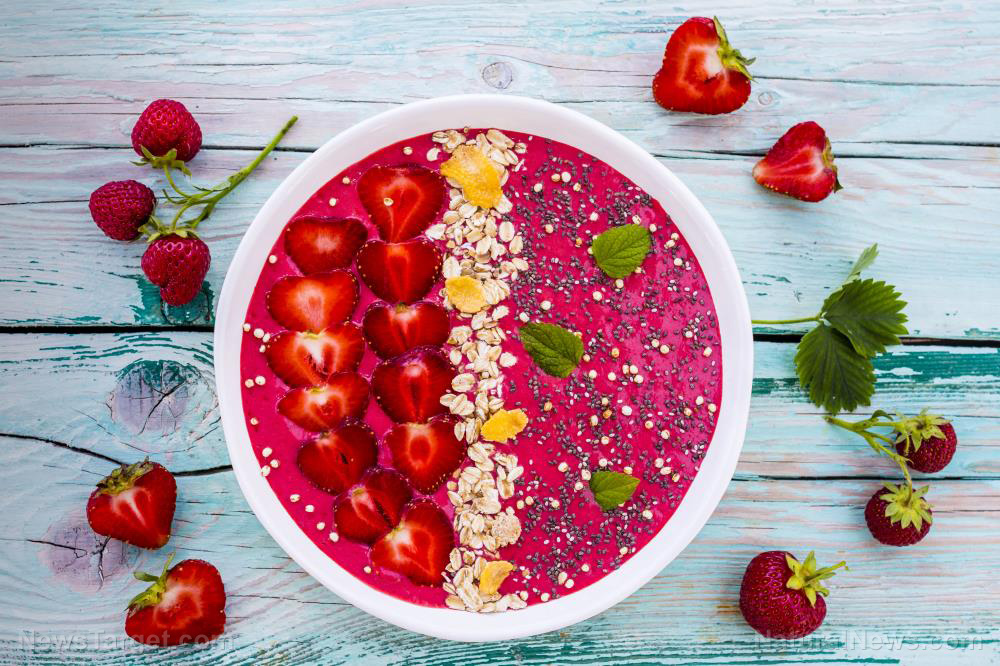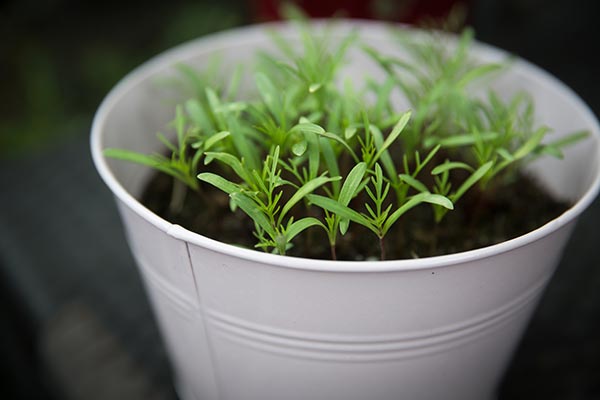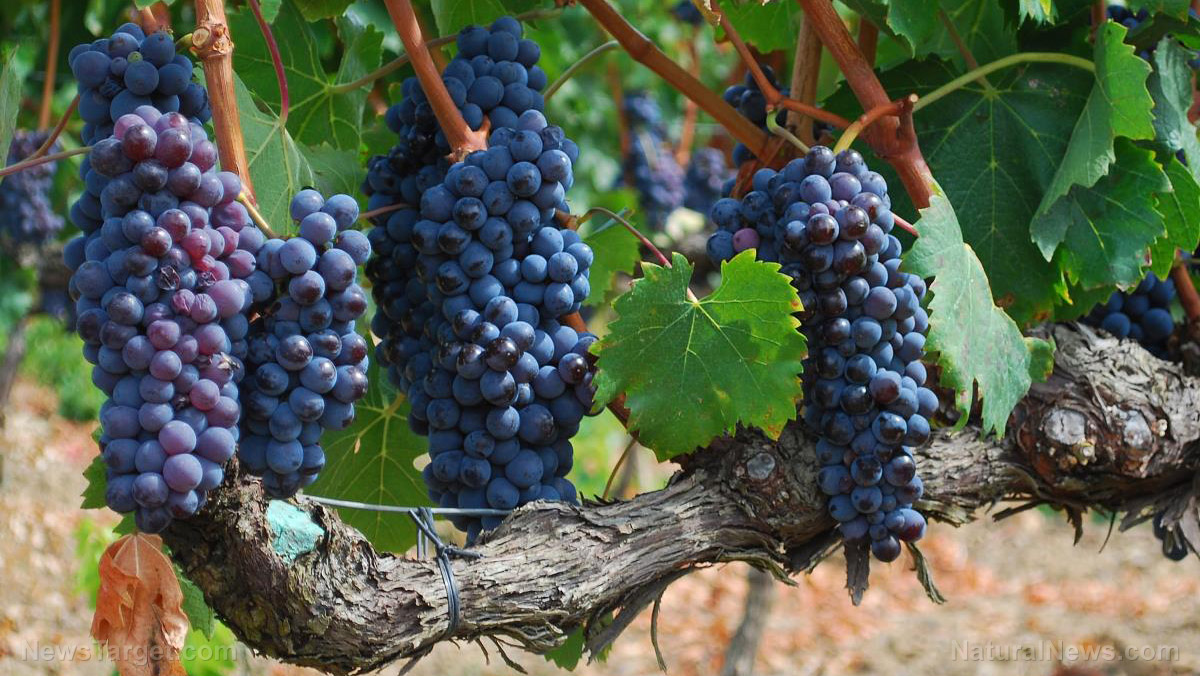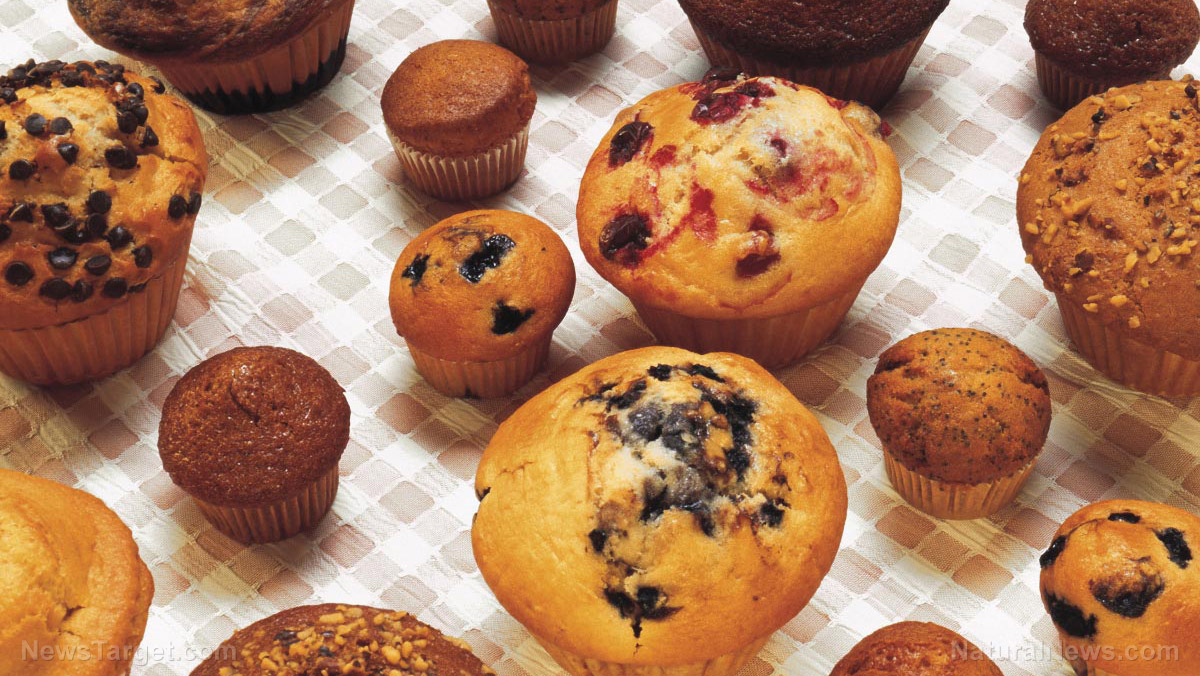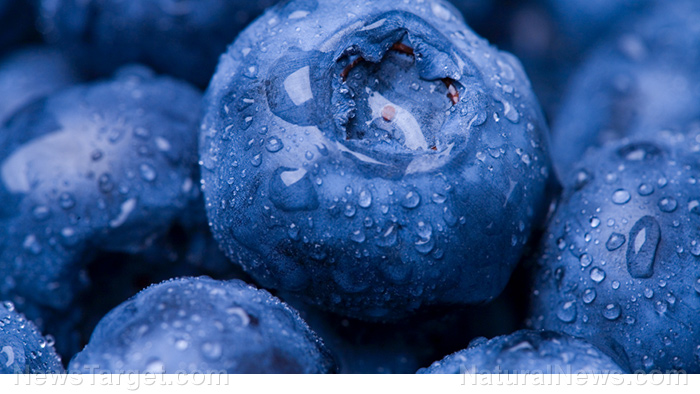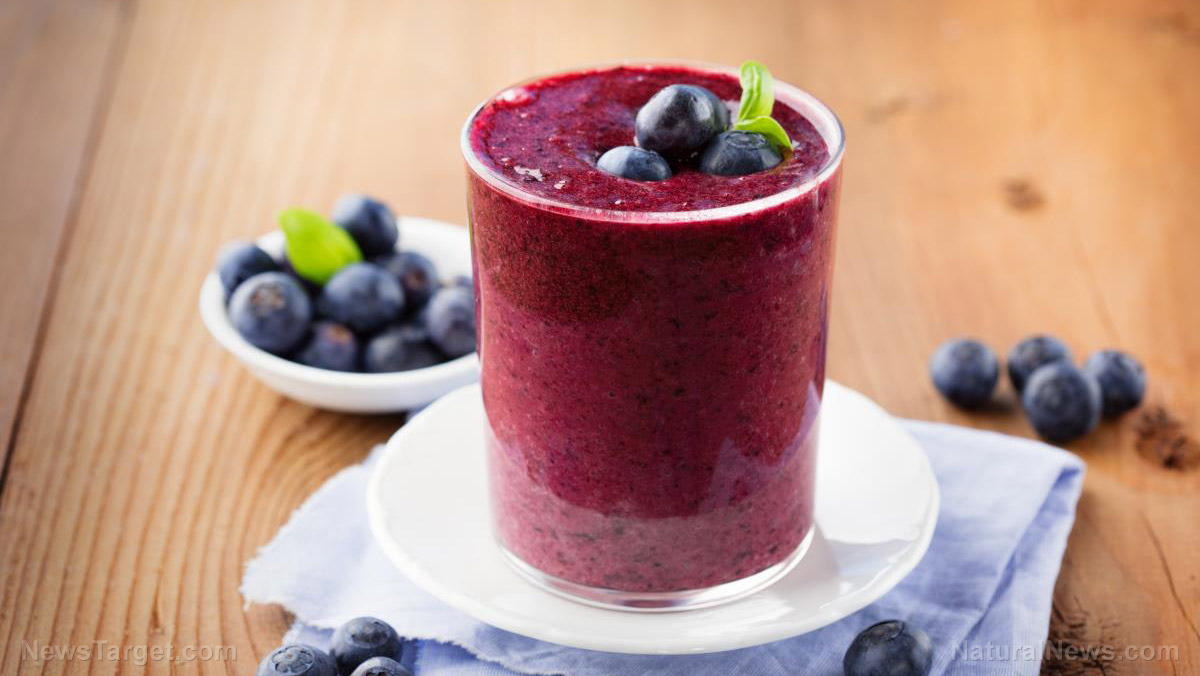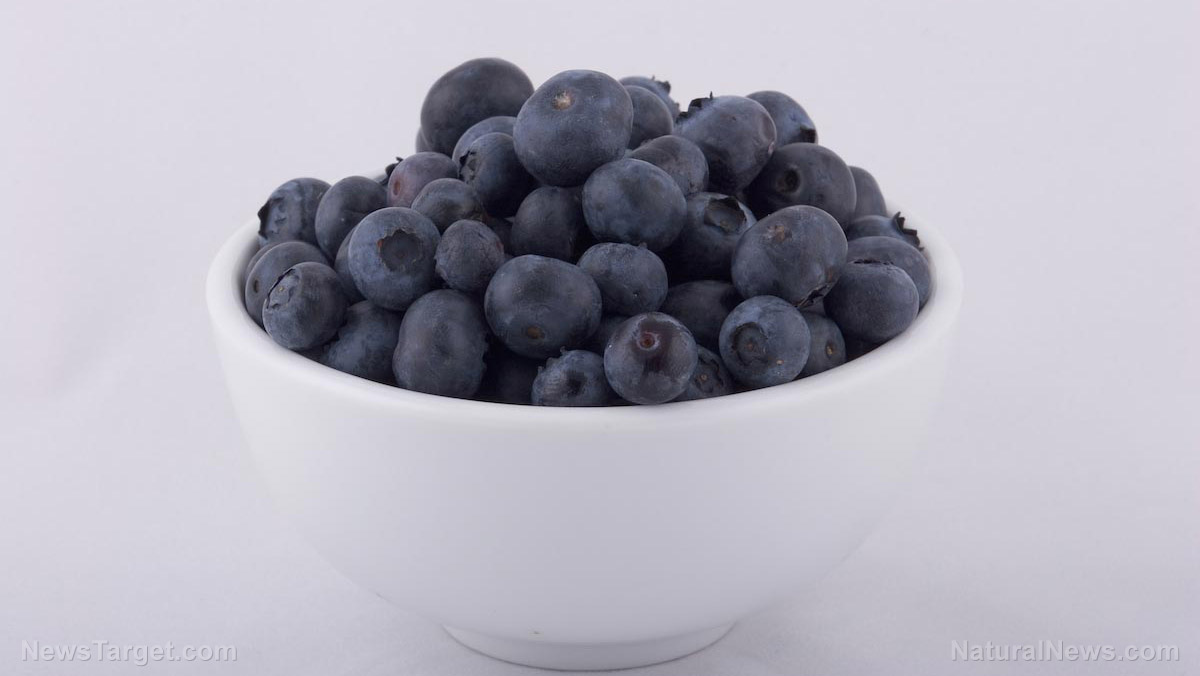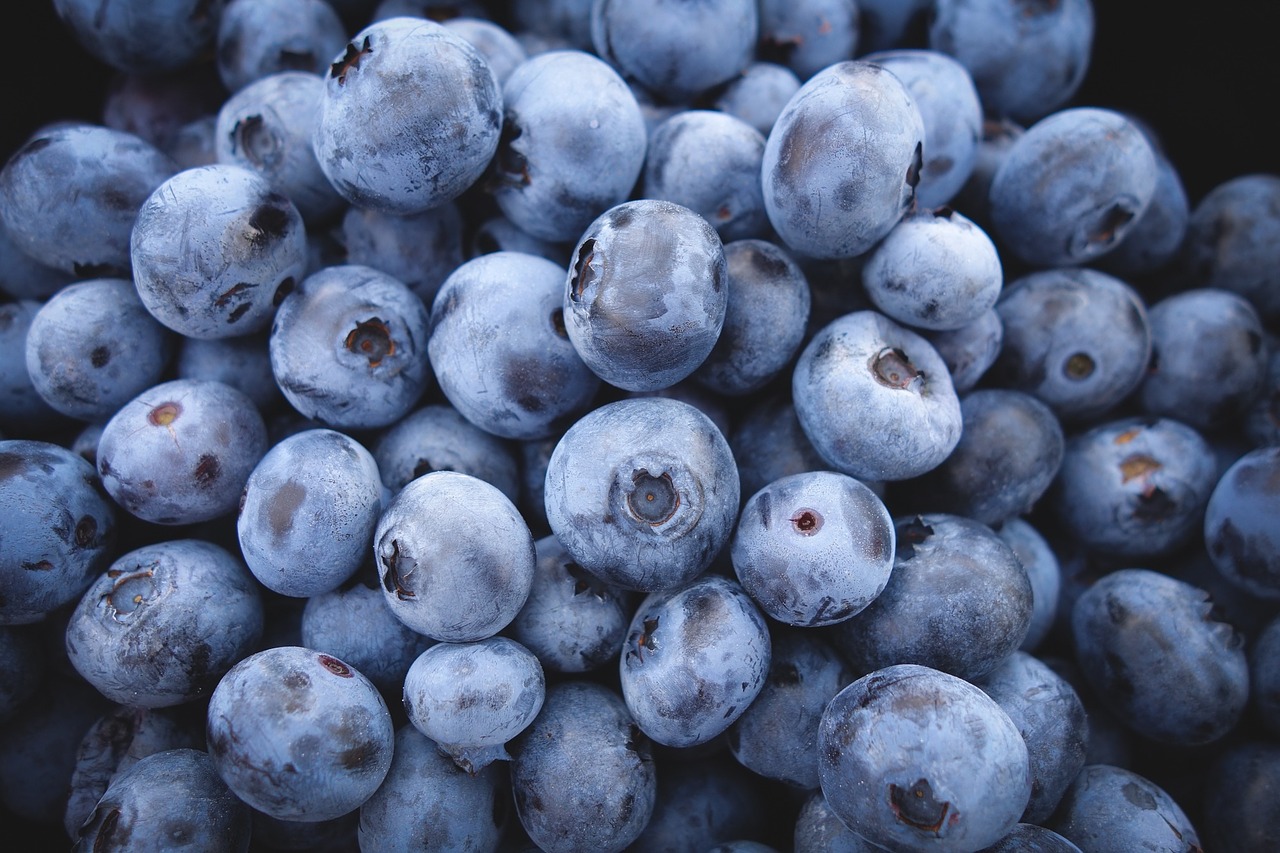Berry good: Researchers discover lifespan-extending compound in blueberries
06/30/2022 / By Zoey Sky

Blueberries are great on oatmeal and fruit smoothies. As an added treat, a unique compound in blueberries may have amazing lifespan-extending properties.
Research has already proven that blueberries are full of potent antioxidants like quercetin and anthocyanins. But a unique compound in blueberries can also activate three different pathways that can help prolong life significantly .
Pterostilbene in blueberries protects against cancer and heart disease
Studies show that pterostilbene, a compound found in blueberries, can induce apoptosis or programmed cell death of malignant cells. The compound also acts against tumors.
Pterostilbene helps prevent the buildup of cellular waste and protects fragile endothelial cells in the arteries. This can then help reduce your risk of atherosclerosis. Pterostilbene can also mimic the effects of calorie restriction.
Researchers explained that this helps enhance anti-aging factors in the cardiovascular system, neurological system and bloodstream. Pterostilbene also activates genes related to long-term survival.
Caloric restriction can offer major preventive and therapeutic benefits and many natural health experts advise that it helps reduce the risk of many chronic diseases by 50 percent. However, not a lot of people are able to voluntarily restrict their food intake enough to realize the benefits.
Fortunately, you don’t have to because certain nutrients are very successful at mimicking the effect of calorie restriction, such as black tea extract, fisetin, grape seed extract, quercetin, resveratrol and whey protein.
Three key pathways that extend life
Pterostilbene helps inhibit the expression of the mammalian target of rapamycin (mTOR) signaling pathway, which helps regulate the growth, survival and proliferation of cells. But when this pathway malfunctions, it can trigger the development of cancer and other chronic degenerative conditions.
Data from animal studies revealed that suppressing the mTOR signaling pathway can extend lifespan. According to researchers, inhibiting the pathway by 25 percent can translate to a 20 percent increase in lifespan.
Additionally, pterostilbene increases the activity of the adenosine monophosphate-activated protein kinase (AMPK) pathway, which regulates the production of energy and reduces chronic inflammation. This pathway also lowers levels of blood sugar and fats in the blood and reduces stores of body fat.
As you age, sluggish AMPK activation results in weight gain and accelerated aging.
On the other hand, enhancing valuable AMPK activity can help improve memory while suppressing the formation of beta-amyloid plaque and tau tangles, both indicators of Alzheimer’s disease. Enhancing AMPK activity is also linked to an additional 20 percent increase in lifespan.
The third and final pathway that pterostilbene can modulate is the sirtuins pathway. Anti-aging sirtuin molecules regulate DNA repair and help to maintain telomere length, a crucial longevity factor.
By stimulating a molecule called sirtuin-1, pterostilbene protects heart cells from dying. Scientists hope that pterostilbene can also help mitigate heart muscle injury after a heart attack.
Pterostilbene also offers another benefit for heart health. Findings from a double-blind, placebo-controlled study conducted at the University of Mississippi School of Pharmacy showed that pterostilbene helped significantly reduce both systolic and diastolic blood pressure.
Resveratrol and disease prevention
Studies have also found that resveratrol, a beneficial flavonoid and another caloric restriction mimetic, can work synergistically with pterostilbene. Both compounds help boost the effect of the other to form a potent combination.
Resveratrol is found in berries, grapes and red wine. According to research, it can help protect against fighting cancer and diabetes.
Resveratrol may also help prevent heart disease and Alzheimer’s.
Studies have found that pterostilbene and resveratrol could be a promising therapy for treating breast cancer cells when combined with standard anti-hormonal therapy.
In a study published in the journal BMC Cancer, scientists discovered that combining resveratrol and pterostilbene helped to down-regulate a sirtuin molecule called SIRT1. This then helped fight breast cancer cells by interfering with their telomerase activity, inhibiting their growth and triggering cell cycle arrest.
Results showed that the breast cancer cells inhibited by the two compounds were triple-negative, a notoriously aggressive type of cell.
The scientists hope that resveratrol and pterostilbene could be used in future recalcitrant triple-negative breast cancer cell prevention and therapy.
Blueberries can protect against dementia and Alzheimer’s disease
Millions of elderly people all over the world have dementia and scientists have turned to natural substances to prevent and alleviate age-related cognitive disorders.Resear
In one animal study, scientists reported that pterostilbene can help prevent the loss of dopamine in the memory centers of aged rats.
There are also other compounds that can be used to fight cancer.
According to a review published in the British Journal of Nutrition, blueberries are also full of anthocyanins, chlorogenic acid, arbutin and myricetin. These antioxidants have strong neuroprotective effects and can help prevent age-related changes in the brain and improve cognition.
For best results, it’s best to incorporate fresh blueberries or blueberry juice into your diet to enjoy the benefits of all the polyphenols they contain, such as pterostilbene, resveratrol and quercetin.
Visit Superfoods.news to learn more about the incredible health benefits of blueberries and other superfoods.
Watch the video below to learn how blueberries can help reduce heart disease risk.
This video is from the Natural News channel on Brighteon.com.
More related stories:
Blueberries: Superfood that can help you improve brain health.
Blueberries are more effective at killing cancer than radiotherapy.
Blueberries are bursting with various antioxidants that reduce the risk of dementia.
Sources include:
Submit a correction >>
Tagged Under:
aging secrets, berries, food cures, food is medicine, fruits, functional food, longevity, nutrients, nutrition, organics, prevention, pterostilbene
This article may contain statements that reflect the opinion of the author
RECENT NEWS & ARTICLES
COPYRIGHT © 2017 BLUEBERRIES NEWS

